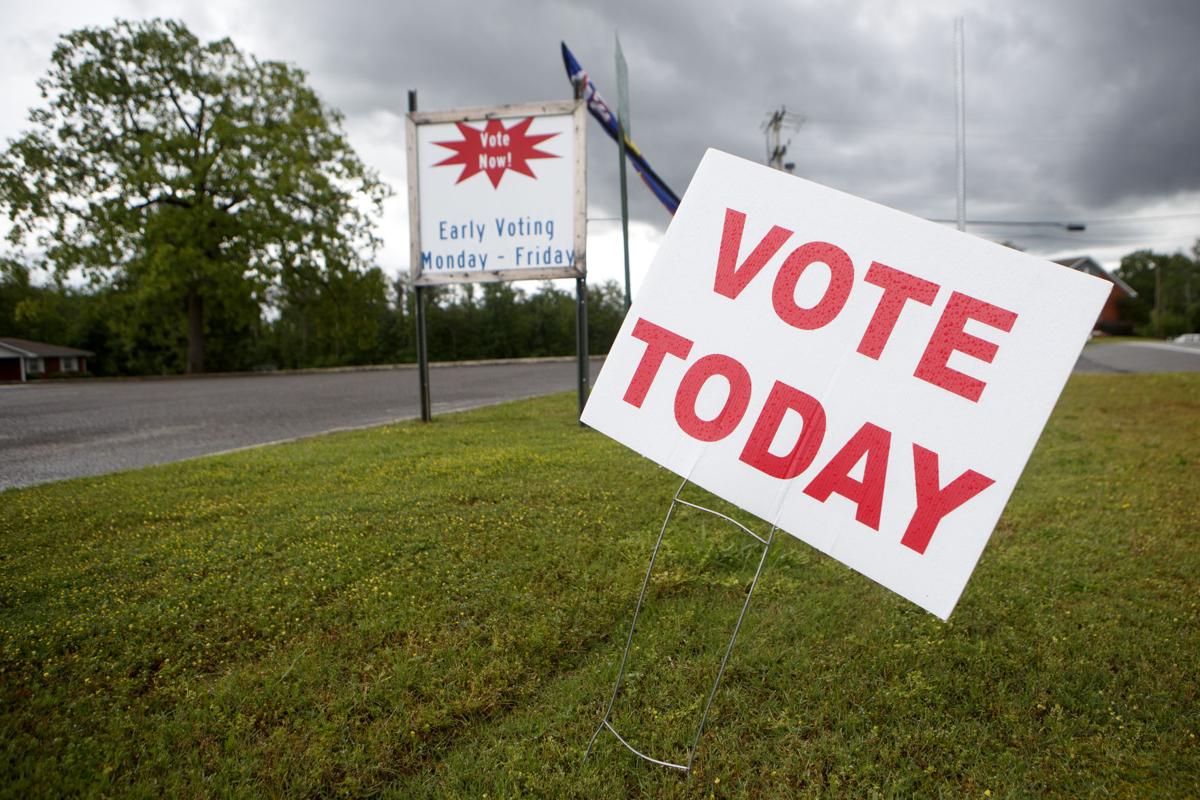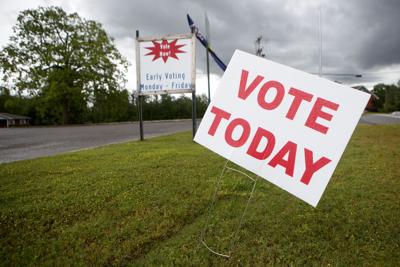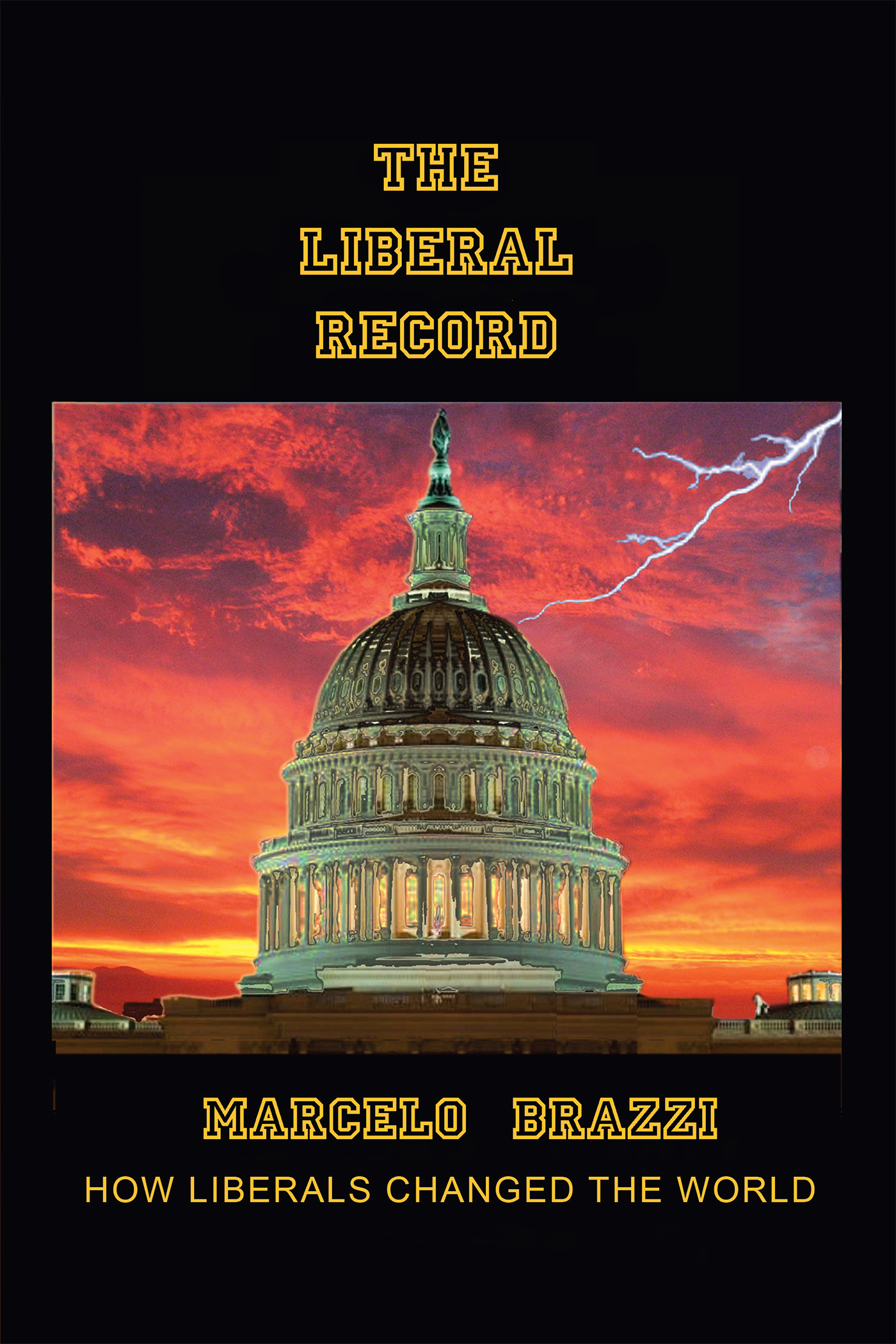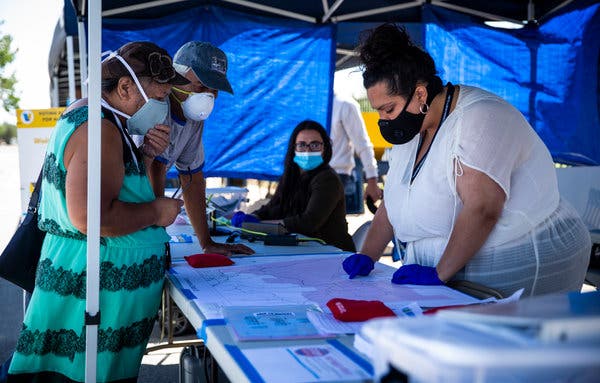Georgia primary: Will protest energy shift to voting booth?

In this May 20, 2020, file photo, signage is seen near the road at the West Side Voting Precinct in Rossville, Ga.
C.B. Schmelter
ATLANTA (AP) — President Donald Trump and his Democratic challenger, Joe Biden, won’t face each other directly in Tuesday’s presidential primaries, but voting in Georgia and West Virginia gives both campaigns an opportunity to prove they can assemble coalitions strong enough to win in November.
The primary contests follow a week of massive protests against police brutality that energized the African American community and its white allies. It’s an open question, however, whether the energy on the streets will translate into energy in the voting booth.
Biden, in particular, is focused on maximizing black turnout and expanding his alliance with white suburbanites and city dwellers, young voters, Asian Americans and Latinos. Trump hopes to demonstrate strength among his base of white voters in small towns while holding his own in metro areas.
Georgia, which has emerged as a potential battleground state this fall, offers the clearest test for those two paths. The state is also holding a Senate primary on Tuesday, with congressional primaries happening in states including Nevada and South Carolina.
“The national stage finally shows what we’ve been saying for some time: that we are a battleground,” said Georgia Democratic Party Chairwoman Nikema Williams, arguing that the state’s growing, diversifying population, coupled with Trump’s turbulent presidency, portends a tipping point.
GOP pollster Whit Ayres added this warning for Trump, who carried the state by 5 percentage points in his first general election: “If he doesn’t win Georgia, then it’s pushing a landslide nationally.”
Indeed, Georgia is a must-win for the Republican president in November. And Trump’s campaign has behaved accordingly.
The president’s political operation never left Georgia after 2016. His spokeswoman Savannah Viar said the campaign has 85 staffers on the ground, considerably more than Democrats’ current crop, which includes six workers focusing on voter protection and more than 40 field workers contacting voters.
Both sides say their staffs will grow.
The state offers a wide swath of rural and small-town counties where Trump remains immensely popular among white majorities. His margins there four years ago helped overcome his deficits in metropolitan areas, including losses in key suburban Atlanta counties that hadn’t been won by Democrats in a presidential election in four decades.
But Democrats point to their successes since — and to voter registration trends that show a swath of new voters in the metropolitan areas where the GOP has struggled.
Democratic Rep. Lucy McBath flipped a suburban Atlanta congressional district in 2018. Democrats nearly flipped a neighboring district and forced a GOP retirement shortly afterward. And Stacey Abrams, now listed among Biden’s potential running mates, narrowly lost the 2018 governor’s race by 1.4 percentage points.
Biden’s campaign manager, Jen O’Malley Dillon, mentions Georgia along with Arizona and Texas as the next three states that Democrats can flip. Still, O’Malley Dillon holds up Arizona as the best opportunity for Democrats, implicitly tamping down expectations in Georgia.
The biggest question is whether Biden can generate enough excitement among the state’s large black community to have a legitimate chance to flip the state this fall.
NAACP President Derrick Johnson downplayed the significance of Biden’s early advantage among black voters.
“You can put a truck driver on the ballot against the current president, and you’re going to get a similar result in terms of support. What’s really at issue here is enthusiasm,” Johnson said in an interview. “Are individuals across the country energized enough behind his vision to turn out to vote? That’s the question that’s on the table.”
Early voting trends offer both parties talking points.
Because of the COVID-19 pandemic, Georgia’s Republican secretary of state sent applications for absentee ballots to every registered voter. By Monday, at least 1.27 million people had already voted, according to Ryan Anderson, an Atlanta data analyst who examines state elections records for his independent website, GeorgiaVotes.com. That figure dwarfs the early vote in the 2016 primary.
Still, Johnson wasn’t sure what effect, if any, the protests might have on Tuesday’s contests.
“I don’t want to make any predictions,” he said. ”But we definitely will be watching to see how all of this will translate.”
Peoples reported from Montclair, N.J.
Catch up on the 2020 election campaign with AP experts on our weekly politics podcast, “Ground Game.”
Copyright 2020 The Associated Press. All rights reserved. This material may not be published, broadcast, rewritten or redistributed without permission.











